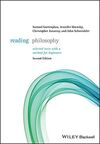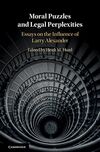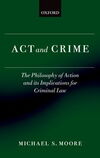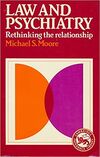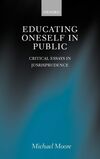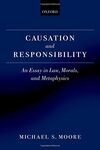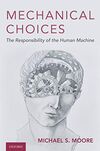This 2020 volume brings together philosophers and psychologists to investigate the phenomenon of transformative change and a host of fascinating questions it prompts. The authors pursue fundamental questions concerning the nature of rationality, the limits of the imagination, and the metaphysics of the self.
- This 2021 textbook provides a unique approach to reading philosophy. It contains texts, commentaries on those texts, and questions for the reader to think about. The texts cover diverse areas of philosophy, ranging over ethics, metaphysics, epistemology, philosophy of mind, aesthetics, and political philosophy.
- This 2018 volume tackles central questions in criminal law, constitutional law, jurisprudence, and moral philosophy, drawing inspiration from the profoundly influential work of the philosopher and legal theorist Larry Alexander.
- This 2008 book explores the thesis that legal roles force people to engage in moral combat, an idea implicit in the assumption that citizens may be morally required to disobey unjust laws, while judges may be morally required to punish citizens for civil disobedience.
- This 1993 work provides, for the first time, a unified account of the theory of action presupposed by both British and American criminal law and its underlying morality.
- In this 1984 book, Michael Moore describes the legal view of persons as rational and autonomous and defends that view from three challenges suggested by psychiatry: that badness is illness, that the unconscious rules our mental life, and that persons are not unified selves.
- This 2000 book is a sophisticated, detailed, and original examination of the main ideas that have dominated Anglo-American legal philosophy since the Second World War.
- This 1998 book by a leading Anglo-American legal philosopher provides a thorough examination of the theory of criminal responsibility. Moore is among the first to apply a retributivist theory of punishment systematically to criminal law theory.
- This 2009 book sets out the place of causation in criminal and tort law and outlines the metaphysics presupposed by legal doctrines. It is the first comprehensive attempt since Hart and Honore to clarify the philosophical background to the legal and moral debates prompted by such questions.
- This 2020 book details how both morality and law presuppose the accuracy of common sense, a centuries-old psychology that defines people as rational agents who make honorable choices and act for just reasons. It defends that presupposition against four recent challenges posed by neuroscientists.

